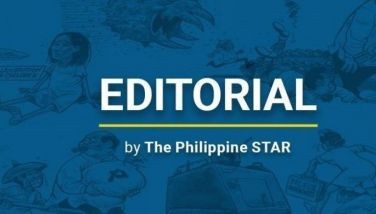Challenges for the coming year
Unbelievable! It’s already the end of the year, with Christmas less than a month away and the year will be over. Another year gone, with the traffic as bad as ever and sure to get worse especially during the holidays.
Traffic alone is already a huge challenge for the administration of President Rodrigo Duterte because the situation isn’t getting any better. Obviously the traffic crisis has been passed on from one administration to another – each time getting worse than before. The main culprit is the delayed implementation of several transport-related projects. The government has laid out a massive infrastructure program with big-ticket projects such as roads, ports, bridges, railways and other mass urban transport projects to address traffic and congestion. According to Budget Secretary Ben Diokno, they have earmarked $300 billion for the next five years in infrastructure spending alone. He says this is the biggest government spending ever since the Marcos era.
Obviously, government has to fast track the process, and one way to do it is to grant emergency powers to the president that would allow negotiated procurement or direct contracting for traffic-related projects, and prevent losing bidders from using lower courts to issue temporary restraining orders that would cause interminable delays. Under the proposed emergency powers bill, only the Supreme Court will have the authority to issue TROs. Congress however wants to rewrite the proposed bill, but it’s not likely to be approved before the lawmakers go on their Christmas break. Another major setback is the “right of way” problem. There has to be a law that should prevent landowners from making an infrastructure project hostage. In the same token, landowners should be protected and paid immediately upon signing over the property.
All kinds of solutions and suggestions are being tried to ease the problem of congestion especially in Metro Manila, among them the implementation of the “no window hours” policy. Metro Manila mayors however have rejected the proposed scheme saying it would be difficult to implement this Christmas. Instead, the mayors want the MMDA to start with “low hanging fruits” by tightening its campaign against illegally parked vehicles.
Another serious challenge is the administration’s continuing fight against illegal drugs. The testimony of Kerwin Espinosa has revealed the complicity of generals and other high-ranking police officials who allegedly act as coddlers and protectors of drug lords. This has put the Philippine National Police in a negative light, convincing many that the situation has, indeed, reached epic proportions.
The recent developments are making many Filipinos realize just how widespread the problem is given the complex picture of narco-politics that is emerging. Certainly, the accusations made against Senator Leila de Lima and her alleged role in the proliferation of the illegal drugs trade in the New Bilibid Prison are serious enough to warrant a Congressional hearing.
But my God, the line of questioning adopted by some congressmen was just totally disgusting and out of line! No one was amused with the way they conducted themselves. Instead of a hearing in aid of legislation, what people saw was more like a hearing “in aid of titillation.”
Let’s just hope that these things will become clearer when charges are filed and a real trial is conducted instead of Senate probes or Congressional hearings where it tends to be too political and biased on one side. A full-blown trial will allow the examination of evidence presented by opposing parties and allow such evidence to corroborate the testimonies of witnesses.
On the international front, human rights will continue to be an issue that the administration will have to face. But then again, every administration in any country has had to face allegations of human rights violations. Even the United States is not exempt. As one former CIA agent told me, the agency has been under investigation for several decades over alleged human rights violations such as the so-called “extraordinary rendition” program where detainees can be transferred to the custody of any foreign government for interrogation and other purposes without going through a legal process. (Reports say 54 countries were complicit in the rendition program but the Philippines was not one of them.)
The UN Human Rights Committee report found the US in violation on many counts for such issues as Guantanamo, racial profiling and police violence – which also explain why President Duterte goes ballistic whenever he is publicly “lectured” for alleged human rights violations by any government.
Another challenge for the coming year is Charter change. The business sector is urging the government to amend economic provisions in the 1987 Constitution that limit foreign ownership in mass media, advertising, real estate, public utility franchise, even educational institutions. The president’s announcement that he is opening up the energy sector to foreign investors is something that businessmen have been waiting for as this will spur development especially with the government’s energy master plan geared at delivering reliable and affordable electricity to sustain economic growth. The Duterte administration is pushing for federalism. The President believes this is the best way to accelerate growth and development especially in Mindanao. We have yet to see if this proposed shift will gather momentum or not.
Perhaps the biggest challenge of all is ending the communist insurgency and establishing peace in Mindanao. Almost from day one, the president has opened the door for negotiation with leftist groups as well as the Moro National Liberation Front and the Moro Islamic Liberation Front. Whether these negotiations will bear fruit or not will come to the fore in 2017 with the Duterte administration quickly learning the intricacies of managing the reins of government.
* * *
Email: [email protected]
- Latest
- Trending




























